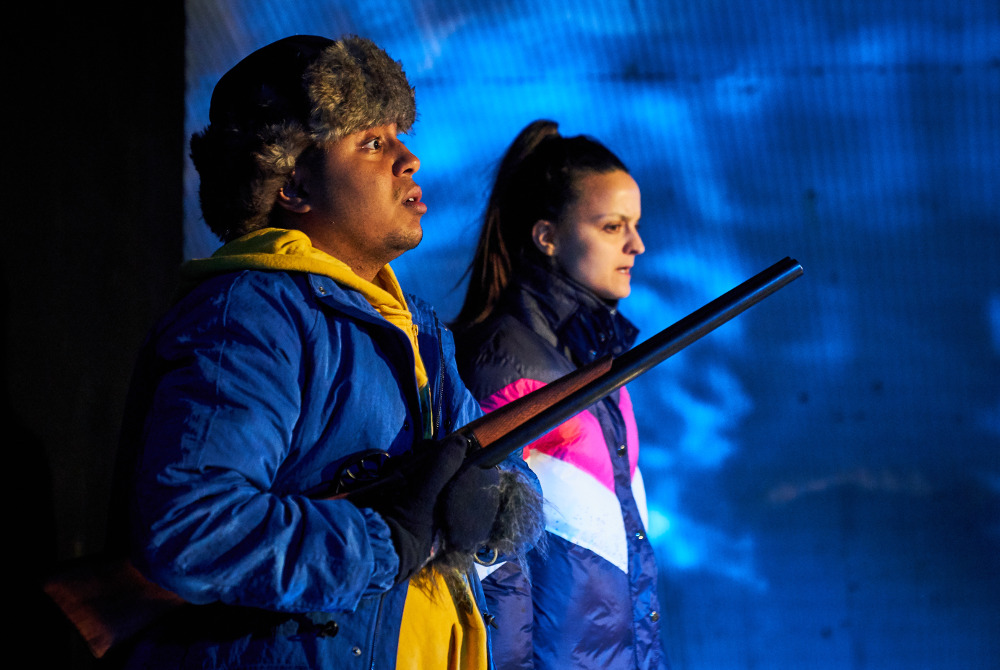Margaret and Stanley are Yupik, growing up in Newtok in rural Alaska on the banks of the Ninglick river. She is nearly 14, he is eight. They watch the snow geese migrating, observing with curiosity that their flight gets earlier each year. As does the arrival of spring.
Margaret wants to move to the city – she yearns for civilisation and is sick of counting how many dried fish they have left to see them through the winter. Stanley has the unbounded energy of an eight year old, bursting with curiosity about life’s adventures – though he draws the line at the prospect of a plot to bury their dad’s gun following an ill-fated trip to shoot a moose.
Phoebe Vigor is a perfectly overbearing big sister, brimming with certainty about life’s unanswered questions. When we fast-forward to see her ten years on, perfectly settled into city life with her sofabed, Starbucks and water purification tablets, she is quieter, less certain, sadder. Her buoyantly optimistic little brother (Zak Douglas) learns that life doesn’t always play out the way you’d like and, as the seas shift around him, recognises the imperative of seizing the time he has. Director Alexander Lass makes good use of the compact space and Isabella Van Braekel‘s perfectly eerily, sparse set.
You could legitimately enjoy Tallulah Brown‘s When The Birds Come as a narrative about the boisterous optimism of youth and the trampling of dreams. But it’s also a play about climate change. Ten years on, Margaret and Stanley’s world looks different in the sort of apocalyptic way that makes us shudder today but will become all too real, all too soon. Rising sea levels, mass relocation, limited or non-existent resources, polar bears rampaging in cities as they don’t have any other source of food. It all feels chillingly likely.
At the curtain call, the actors tell us that 300 people from Newtok have already been relocated as their homes have become uninhabitable. As Europe swelters through a summer of exceptional temperatures, Alaska doesn’t feel so far away.
